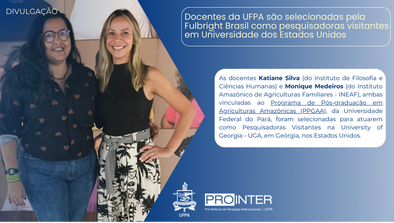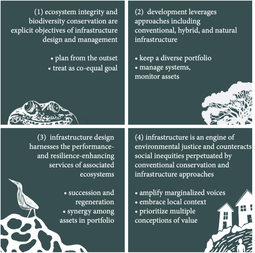|
Sechindra Vallury (PI), Don Nelson (co-PI), and Nathan Cook (co-PI) were awarded funding from the Human-Environment and Geographical Sciences Program (HEGS) for their project titled "Equitable Pathways to Climate-Smart Agriculture: Rethinking Adaptation as a Continuum". The research investigates the challenges faced by farmers in adapting to global climate change, focusing on differences among various types of farmers and over time. The project asks three related questions: who can adapt their farming practices to climate change, how does this ability vary among different farmers, especially those belonging to historically disadvantaged groups, and what are the long-term impacts of these differences on the sustainability of agriculture? The work will take place in the Indian states of Maharashtra and Bihar.
0 Comments
 Members of the Brazil Natural Resources Governance Initiative (BNRGI) were selected to participate in a in a training program hosted by the Inter-American Institute for Global Change Research (IAI) . The BNRGI project is focused on climate-resilient agroforestry in the Brazilian Amazon and aims to pilot participatory action-research in partnership with Afro-descendant quilombola communities in Marajó archipelago in the Amazon estuary. The project is co-constructed with the grassroots organization Campinas/Vila União Center for Quilombola Action and Resistance (NARQ). The team is led by Prof. Monique Medeiros of the Federal University of Pará (UFPA), and includes Luciane Lopes and Glenda Leão of NARQ, Prof. Daniel Braga (UFPA), and Profs. Don Nelson and Gregory Thaler (University of Georgia).  As part of the wrap-up to his NSF funded dissertation work "Measuring Variation in Water Pollution Impacts and Water Insecurity Infrastructures Across Socioeconomic Status" Raul held a day long photovoice exhibit at the Chico Mendes park in Rio De Janeiro. The park hosts daily classroom visits with young students and receives visitors from all over the city. A great way to share what Raul and his local collaborators have been up to! Congratulations, Gabrielle! She will leave for Ceará, Brazil in September 2024 to work on her project "What is soil? A socio-ecological approach to understanding soils". She will be supported in her work by long-time lab collaborators at the Ceará Foundation for Meteorology and Water Resources (FUNCEME).
Congratulations, Kate! This is an incredible honor and we are very happy for you! Kate's dissertation research, co-developed with local community members will focus on biodiversity and conservation in the Colombian Amazon.
 HECLab postdoc Katie Foster was recently awarded the Excellence in Research Award by the Graduate School at the University of Georgia for her dissertation research on Indigenous land rights and mining conflicts in Peru. The award comes with a $1000 prize, and she will be recognized along with other honorees at the Graduate School Honors Luncheon this April. Cydney was awarded the 2024 J. Peter Brosius Integrative Conservation Research Award for their article, “At the extremes: Assessing interrelations among the impacts of and responses to extreme hydroclimatic events in Ceará, Northeast Brazil.” Cydney collaborated with Don, Nicolly Santos Leite, and Eduardo Sávio Martins (FUNCEME) on the article, which examines outcomes of and responses to extreme rainfall and flooding in 2023 in the semi-arid region of Ceará, Brazil and their relationships to adaptation measures to severe drought from 2012 to 2018 and prolonged drought impacts in the region. The article was recently published in Journal of Hydrology. https://doi.org/10.1016/j.jhydrol.2024.130850
 Prof. Katiane Silva and Prof. Monique Medeiros from the Federal University of Pará (UFPA) will join us during Spring 2025. Monique will be hosted by the Department of International Affairs and Katiane will be hosted by the HECLab. Katiane will be working on her most recent research activities exploring the socio-environmental conflicts that arise through demarcation of indigenous lands in Brazil. Their visit will continue our ongoing collaboration activities with the Instituto Amazônico de Agriculturas Familiares at UFPA.
|
HECLAB newsLearn about what we have been up to. Archives
July 2024
CategoriEs
All
|


 RSS Feed
RSS Feed